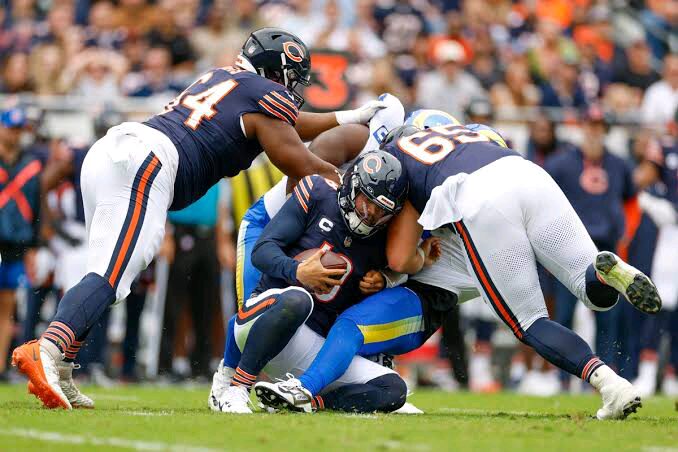Bears in Unusual Situation: Run Defense Is Under Question
The Chicago Bears, long known for their tough, physical defense, find themselves in an unfamiliar and concerning situation this season. The once-dominant run defense, a cornerstone of the Bears’ identity, has come under intense scrutiny. After several games of allowing opposing teams to rack up significant yardage on the ground, questions are now being raised about whether the Bears can regain their defensive edge or if this is the new reality for the team.
In recent years, the Bears’ run defense has been a force to be reckoned with, consistently ranking among the top in the league. However, the current campaign has seen a significant drop in performance. Opposing running backs have been able to find gaping holes in the defensive line, breaking off long runs and controlling the pace of the game. Through the first few weeks of the season, the Bears are allowing an average of 140 rushing yards per game—far from the stingy numbers they are accustomed to.

Several factors could be contributing to this downturn. The departure of key defensive personnel in the offseason left a void that younger, less experienced players are struggling to fill. The loss of veterans like Akiem Hicks and Roquan Smith, known for their abilities to plug gaps and read offenses, has had a lasting impact on the defense. This drop in veteran presence has shifted more responsibility onto younger players, who are still finding their footing in a system that demands physicality and discipline.
Injuries have also played a role. Key contributors have missed crucial games, leading to a rotating lineup that has struggled to maintain consistency. When players are in and out of the lineup, it’s challenging to establish rhythm and chemistry, and this lack of cohesion has been evident on the field. Tackling, which has traditionally been a strength for the Bears, has also become a significant issue, with missed tackles leading to big plays and back-breaking touchdowns.
Defensive coordinator Alan Williams has been vocal about the need for improvement. “We’ve got to be better in our gaps and more disciplined in our assignments,” Williams said in a recent press conference. He emphasized that the issues are correctable, but they require focus and effort from all 11 players on the field. Williams also hinted at potential schematic changes to address the problems, such as stacking the box more often to prevent opponents from running at will.
The Bears face a pivotal stretch in their schedule, with games against teams that boast powerful running attacks. If they cannot right the ship soon, the foundation of the team will be shaken, and their playoff hopes will grow dim. The pressure is on, and the Bears’ run defense will need to answer the challenge or risk falling further into a hole they cannot climb out of.







